In our Oxford Academia Bioethics Seminar, students discussed the ethical aspects of studying consciousness and then explored Conservation Dilemmas, prioritizing limited resources for biodiversity preservation. During a museum visit, they simulated conservation decisions, choosing emblematic species like honeybees, worms, and coral, emphasizing the delicate balance between economic interests and wildlife protection. Find out more in this blog post from the summer of 2023:
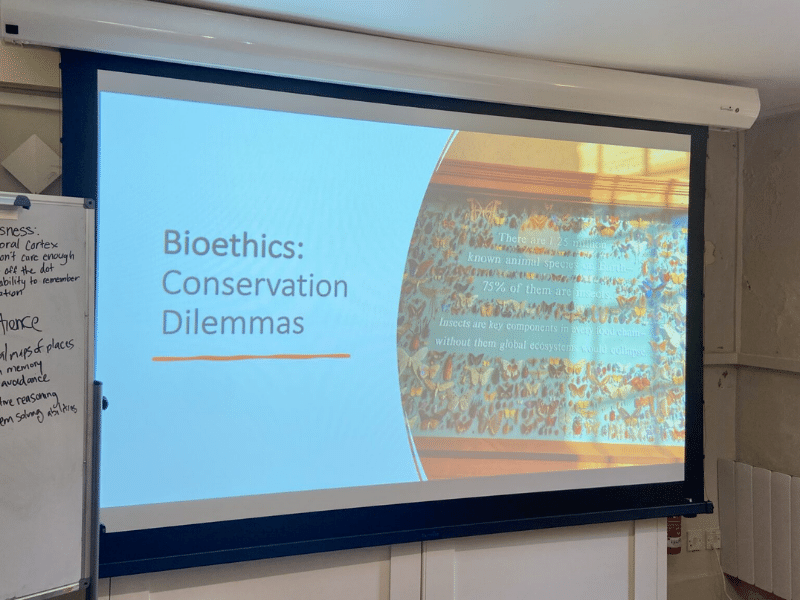
Yesterday in Bioethics we thought about what it means to be conscious. We also thought about how to study sentience, perception, and intelligence in other species, and what the findings of this research could mean for policy. Today we introduced a new topic: Conservation Dilemmas.
Diversity of life is essential for functioning and resilient ecosystems. We depend on it for our survival, even for the soil we grow crops in. However, how we use land and interact with the natural world has resulted in us losing biodiversity rapidly. Between 1970 and 2018, around 70% of wild animal populations were lost.
After learning the importance of protecting biodiversity, the Bioethics minor students headed over to the Natural History Museum.
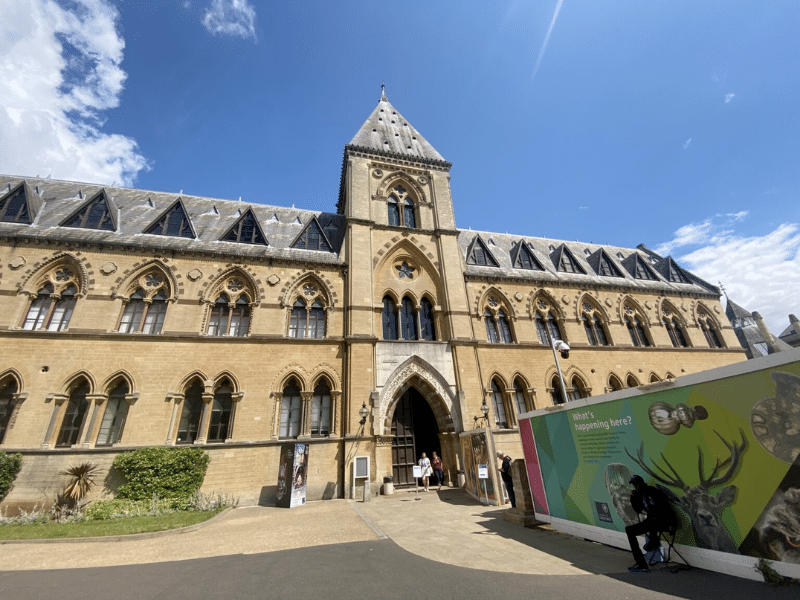
Here, they were tasked with imagining that they are in charge of a conservation organization. With only a limited amount of funding, but with millions of species across the world in need of protecting, how do we choose where to focus our resources?
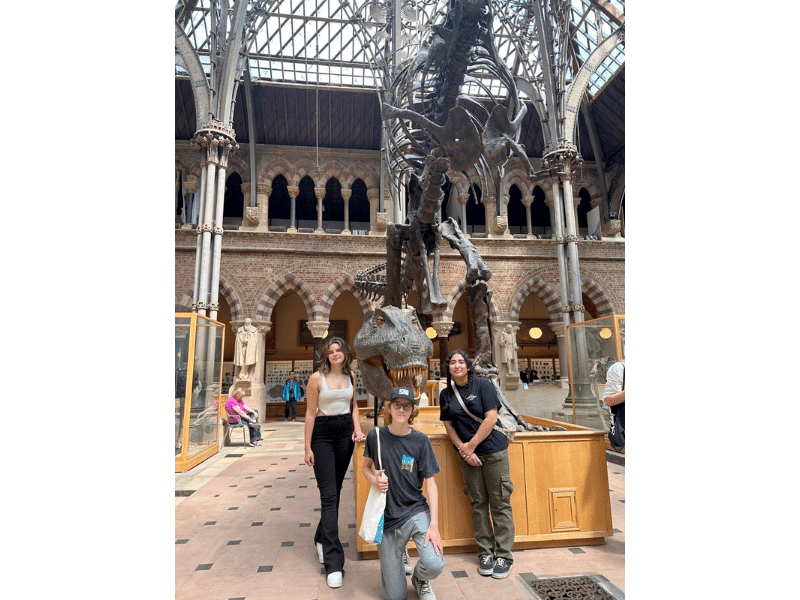
The students explored the museum and used the information in the displays to help them make their choice.
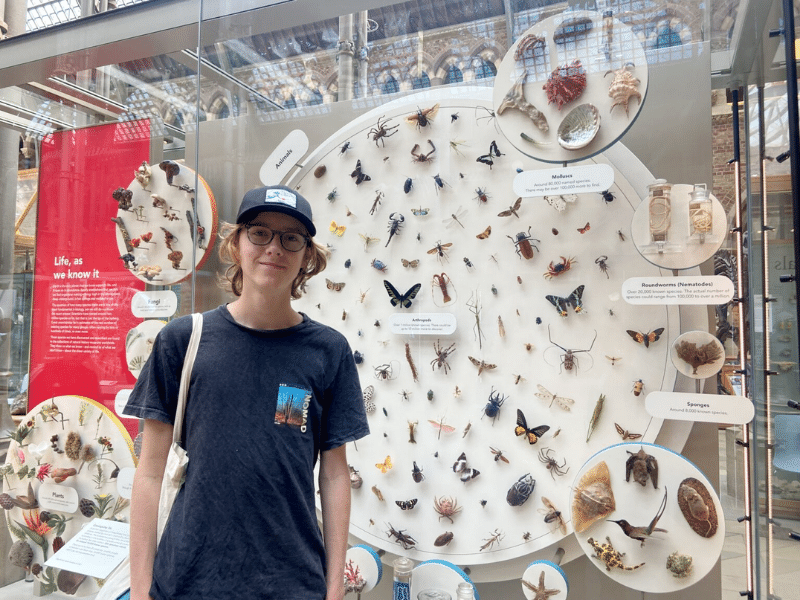
Merle chose the honeybee as his conservation priority as the pollination services the bee provides are important to us and to countless other species.
We talked about how we must also consider the native range of species, as one particular issue with honeybees is that people move them around the world and sometimes this can cause problems for native wildlife when the bees end up in ecosystems they didn’t evolve in. Balancing economic needs and wildlife protection is a dilemma conservationists encounter regularly.
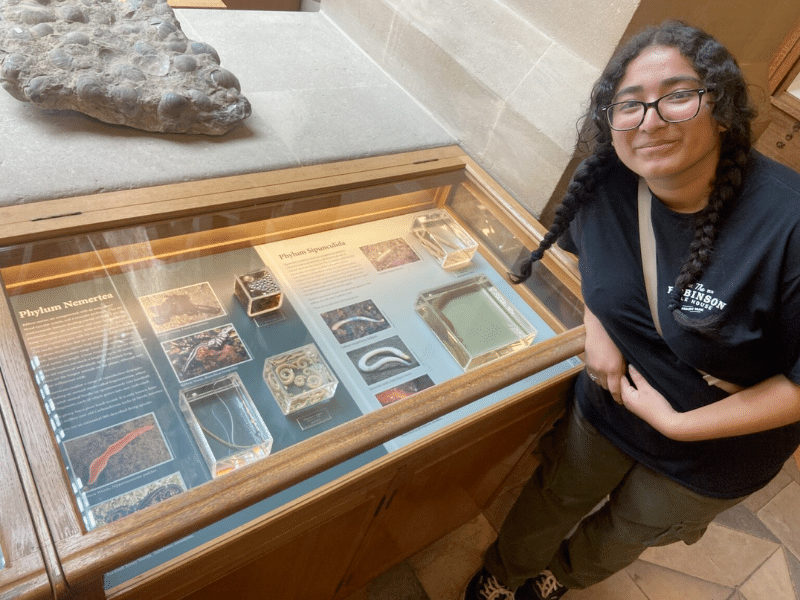
Lisbed chose worms as her conservation priority. The display shows an amazing diversity of different worms, and Lisbed said that they must be an important food source for many other animals.
Finally, Siena chose coral. Coral reefs are enormously important for biodiversity, as the complex structure of them provides food and shelter for many other animals. With global warming, coral bleaching is a serious issue.
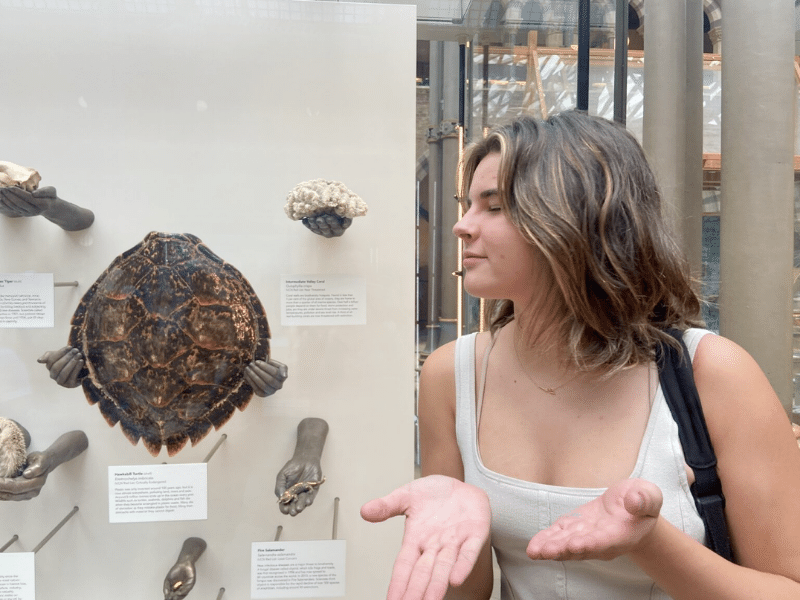
We hope that with our chosen mascot species, we can raise more money from the public to protect habitats, thereby preserving homes for many other creatures too.
